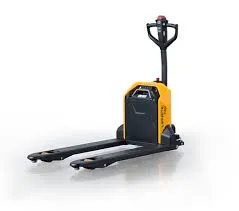


The Manual Lever Block A Versatile Tool for Lifting and Rigging
Manual lever blocks, also known as lever hoists, are indispensable tools widely used in various industries for lifting and hoisting applications. These devices employ a mechanical system that uses a lever mechanism to lift heavy loads with relative ease. This article will explore the functionality, applications, benefits, and safety considerations associated with manual lever blocks.
Understanding Manual Lever Blocks
A manual lever block consists of several key components, including a lever arm, a hook, a load chain, and a ratcheting mechanism. The user operates the lever arm to lift the load by pulling down, which engages the ratchet system to incrementally raise the load. The simplicity of this design allows one person to lift heavy items without the need for complex electrical systems or machinery.
The lifting capacity of manual lever blocks can vary significantly, ranging typically from 0.5 tons to several tons, catering to different lifting requirements. Their compact size and lightweight design make them suitable for various environments, from construction sites to factories, and even for household projects.
Applications of Manual Lever Blocks
The versatility of manual lever blocks makes them suitable for a range of applications
1. Construction and Industrial Use These tools are commonly used to lift heavy materials like steel beams, machinery, and equipment assembly in construction sites and factories.
2. Warehousing and Logistics Manual lever blocks assist in moving heavy loads in warehouses, especially where electric hoists may not be feasible due to space limitations or the need for portable solutions.
4. Marine Applications In maritime settings, lever hoists are effective for lifting goods on and off ships, particularly in docks where space might be constrained.
Benefits of Manual Lever Blocks

One of the most significant advantages of using a manual lever block is its portability. Unlike electric hoists, which require power sources, lever blocks can be easily transported and deployed in various locations. This aspect makes them particularly popular for temporary setups or remote applications.
Another benefit is their durability and low maintenance. Constructed from robust materials, these hoists are designed to withstand harsh operating conditions. With minimal moving parts, they require less frequent servicing compared to their powered counterparts.
Additionally, manual lever blocks are cost-effective. They are generally less expensive than electric models, making them an attractive option for businesses or individuals working with a tight budget.
Safety Considerations
While manual lever blocks are inherently safe when used correctly, certain safety considerations must be observed
1. Weight Limits Always ensure that the load does not exceed the rated capacity of the lever block. Overloading can lead to equipment failure and serious accidents.
2. Inspection and Maintenance Regularly inspect the device for signs of wear or damage. Check the hooks, chains, and lever mechanisms to ensure they are functioning properly.
3. Proper Use Use the lever hoist as intended and follow the manufacturer’s guidelines. Ensure that the load is evenly distributed and securely attached to prevent slipping or falling.
4. Protective Gear Operators should wear appropriate safety gear, including gloves and hard hats, to minimize the risk of injuries.
Conclusion
In summary, manual lever blocks serve as essential tools for various lifting and rigging applications. Their simplicity, portability, and durability make them valuable assets in a myriad of settings, from industrial environments to home improvement projects. By understanding how to use them safely and effectively, users can maximize their benefits while minimizing risks associated with heavy lifting. Investing in a quality manual lever block can make lifting tasks easier and safer, thereby enhancing productivity across multiple sectors.



